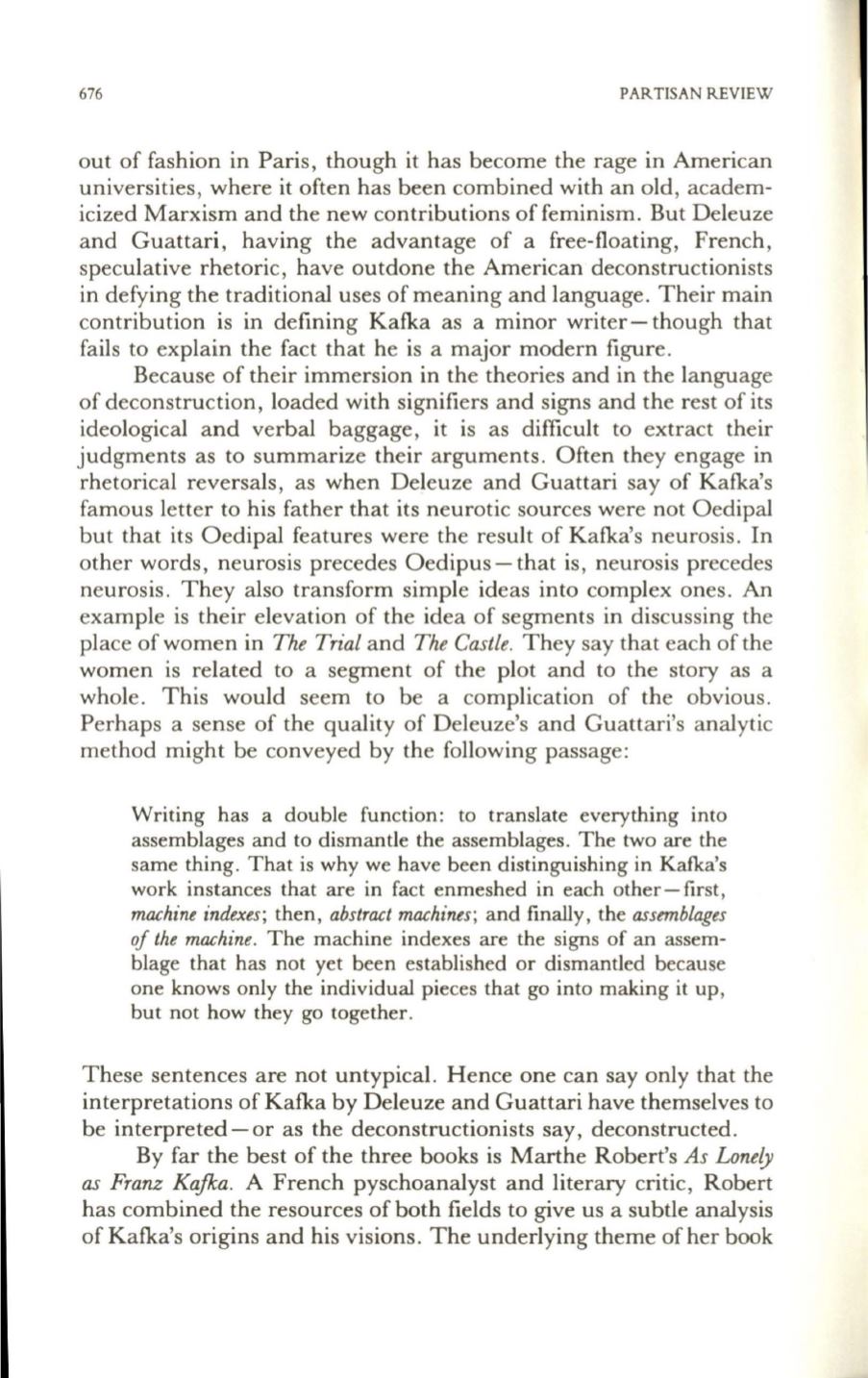
676
PARTISAN REVIEW
out of fashion in Paris, though it has become the rage in American
universities, where it often has been combined with an old, academ–
icized Marxism and the new contributions offeminism. But Deleuze
and Guattari, having the advantage of a free-floating, French,
speculative rhetoric, have outdone the American deconstructionists
in defying the traditional uses of meaning and language. Their main
contribution is in defining Kafka as a minor writer - though that
fails to explain the fact that he is a major modern figure.
Because of their immersion in the theories and in the language
of deconstruction, loaded with signifiers and signs and the rest of its
ideological and verbal baggage, it is as difficult to extract their
judgments as to summarize their arguments. Often they engage in
rhetorical reversals, as when Deleuze and Guattari say of Kafka's
famous letter to his father that its neurotic sources were not Oedipal
but that its Oedipal features were the result of Kafka's neurosis. In
other words, neurosis precedes Oedipus - that is, neurosis precedes
neurosis. They also transform simple ideas into complex ones. An
example is their elevation of the idea of segments in discussing the
place of women in
The Trial
and
The Castle.
They say that each of the
women is related to a segment of the plot and to the story as a
whole. This would seem to be a complication of the obvious.
Perhaps a sense of the quality of Deleuze's and Guattari's analytic
method might be conveyed by the following passage:
Writing has a double function: to translate everything into
assemblages and to dismantle the assemblages. The two are the
same thing. That is why we have been distinguishing in Kafka's
work instances that are in fact enmeshed in each other- first,
machine indexes;
then,
abstract machines;
and finally, the
assemblages
of the machine.
The machine indexes are the signs of an assem–
blage that has not yet been established or dismantled because
one knows only the individual pieces that go into making it up,
but not how they go together.
These sentences are not untypical. Hence one can say only that the
interpretations of Kafka by Deleuze and Guattari have themselves to
be interpreted - or as the deconstructionists say, deconstructed.
By far the best of the three books is Marthe Robert's
As
Lonely
as Franz Kafka.
A French pyschoanalyst and literary critic, Robert
has combined the resources of both fields to give us a subtle analysis
of Kafka's origins and his visions. The underlying theme of her book


